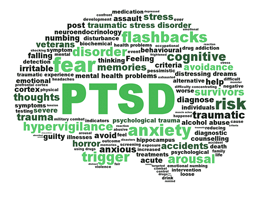Floating and PTSD
- Jun 29, 2017
- 2 min read
As defined by the National Center for PTSD, Post Traumatic Stress disorder is a chronic mental health problem that can develop after a traumatic life even such as combat, natural disaster, car accident, or sexual assault. While not all individuals who experience these events will develop PTSD, there is still a likelihood of short lived symptoms upon returning to their normal lives. If these maladjustments continue for several months, however, or begin to reappear down the line, the individual could be categorized with PTSD. The most commonly reported symptoms are that of a constant re-living of the experience, avoiding situations that trigger memories, negative beliefs and feelings, and hyperarousal.
Western medicine has presented a cornucopia of pharmaceuticals to aid and treat those who suffer from PTSD. Though often times effective, these medications can cause unwanted side effects which leave many who suffer looking for an alternative addition.
Floatation tanks have been in and out of the public eye for more than fifty years but only recently, due to Dr. Justin Feinstein’s work at LIBR institute, have they been paired with stress disorders and neurophysiology. Dr. Feinstein’s research involves the use of floatation tanks and advanced neurofeedback technology to study the effect that floating has on a variety of stress and anxiety disorders. Outside of clinical research, float centers across the country have been opening their doors and their hearts to individuals suffering from PTSD, and the response has been nothing short of miraculous. Floating often gives an individual the perfect environment to locate the source of their hyperarousal and their negative emotions, without the clutter of sensory input. The brain begins to produce deep theta brain waves (i.e REM sleep, lucid dreaming, just after waking) which can bring forth a sense of clarity and focus unparalleled by anything in normal waking life. This state of focus, as reported by those who suffer from PTSD, gives an honest and unfiltered look into the source of their symptoms. It is a beautiful, comfortable, easily controllable look into the mirror glass of the self. As goes for anything, this is not a cure all, but one cannot deny the potential of working from within.
If you or a loved one is struggling with PTSD, and would like to try floating at our shop as a treatment, please reach out. We will work with all budgets, we just want to help.
To learn more about the ongoing research on floating and the brain, click here!
.png)


Comments